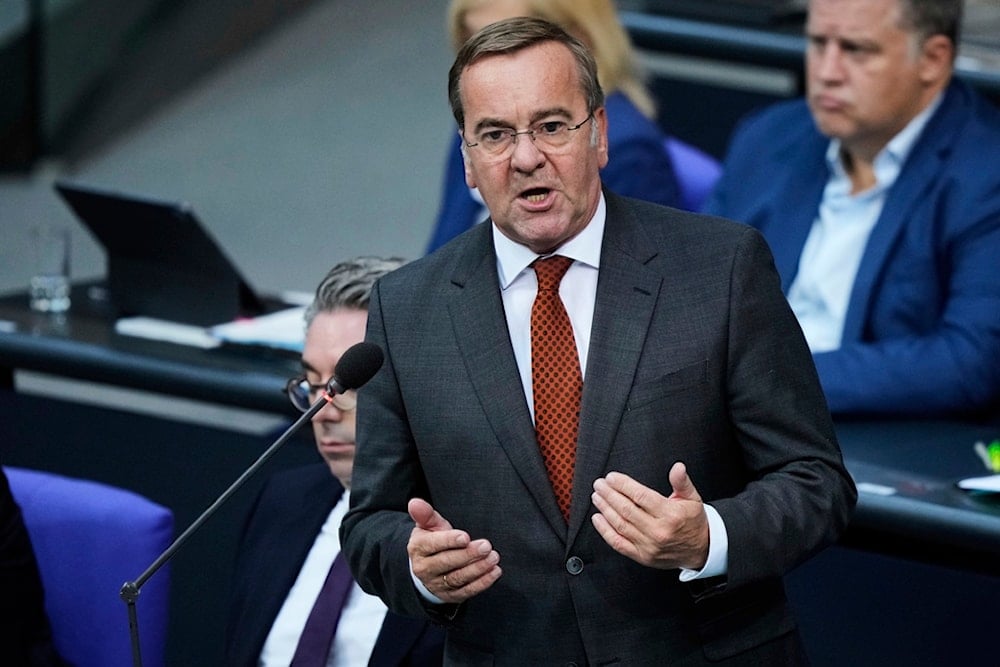Germany pledged €9Bln a year for Kiev, but Pistorius wants far more
Germany is facing budget tensions over Ukraine aid as Defense Minister Boris Pistorius pushes for more funding than allocated.
-

German Defence Minister Boris Pistorius, center, answers questions of lawmakers during a session of the German parliament Bundestag in Berlin, Germany, Wednesday, Sept. 10, 2025 (AP Photo/Ebrahim Noroozi)
German newspaper Bild reported on Friday that Defense Minister Boris Pistorius requested an extra 10 billion euros ($11.7 billion) over the next two years for military support to Ukraine, far exceeding the amount currently approved by the government.
According to the report, the funding gap has forced Berlin to suspend contracts intended to deepen cooperation with Ukraine's defense industry, while some planned support measures for Kiev's armed forces will be reduced.
An internal Defense Ministry paper distributed to Bundestag lawmakers in late August indicated that the ministry had already informed the Finance Ministry back in June that 15.8 billion euros would be needed in 2026 and 12.8 billion in 2027. The budget, however, only set aside 9 billion euros for both years combined, counting EU contributions. The ministry described this allocation as falling short, noting that its original request was "significantly higher."
When pressed on the issue, officials from the defense and finance ministries denied any dispute. They stated: "The figures taken into account in preparing the budget were jointly agreed upon by the federal minister of finance and the federal minister of defense, so there is full agreement on this issue."
Vice Chancellor and Finance Minister Lars Klingbeil, during an August visit to Kiev, stated that Berlin's plan remains to provide 9 billion euros annually in aid.
Germany Aid Strains
Finance Ministry data shows that between February 2022 and the end of 2024, Germany contributed 50.5 billion euros to Ukraine. Of this total, 25 billion went to hosting Ukrainian refugees, 17 billion to weapons and military training, 6.7 billion to energy infrastructure repair and other civilian projects, and 1.9 billion directly to Ukraine's state budget for salaries.
Moscow, meanwhile, continues to frame Western arms deliveries as an obstacle to peace. Foreign Minister Sergey Lavrov reiterated that such supplies extend the conflict, warning: "Any cargo containing weapons for Ukraine will be a legitimate target for the Russian military."
The budget debate comes as European diplomacy with Moscow remains stalled. The Kremlin recently declared peace talks with Ukraine "paused" and accused European governments of obstructing negotiations, while EU leaders insist that any settlement must safeguard Ukraine's sovereignty and territorial integrity.
Analysts note that the funding dispute in Berlin underscores broader strains across Europe: governments are under pressure to sustain large-scale military and humanitarian commitments while also managing domestic fiscal limits, all against the backdrop of uncertainty over how or when the war might end.
Read more: Poland deploys 40,000 troops ahead of Russia-Belarus Zapad drills

 3 Min Read
3 Min Read









